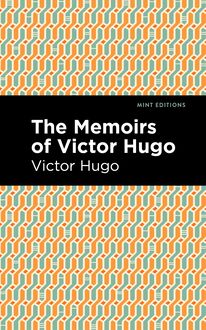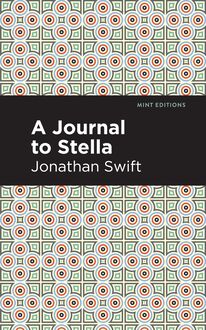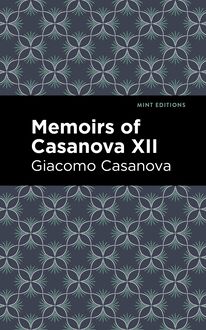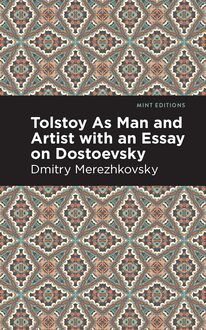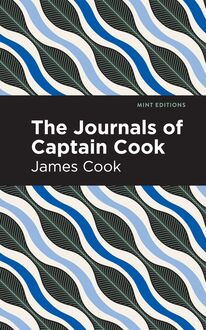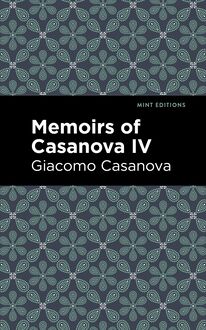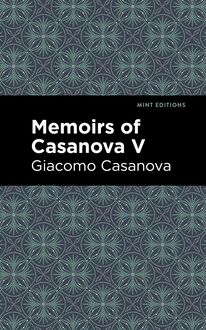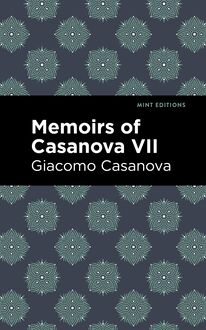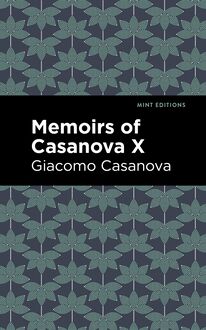-
 Univers
Univers
-
 Ebooks
Ebooks
-
 Livres audio
Livres audio
-
 Presse
Presse
-
 Podcasts
Podcasts
-
 BD
BD
-
 Documents
Documents
-
- Cours
- Révisions
- Ressources pédagogiques
- Sciences de l’éducation
- Manuels scolaires
- Langues
- Travaux de classe
- Annales de BEP
- Etudes supérieures
- Maternelle et primaire
- Fiches de lecture
- Orientation scolaire
- Méthodologie
- Corrigés de devoir
- Annales d’examens et concours
- Annales du bac
- Annales du brevet
- Rapports de stage
La lecture à portée de main
Vous pourrez modifier la taille du texte de cet ouvrage
Découvre YouScribe en t'inscrivant gratuitement
Je m'inscrisDécouvre YouScribe en t'inscrivant gratuitement
Je m'inscrisEn savoir plus
Vous pourrez modifier la taille du texte de cet ouvrage
En savoir plus

Description
Autobiography of Mark Twain (1907) is a collection of autobiographical writings by American humorist Mark Twain. Dictated toward the end of his life, the Autobiography of Mark Twain is a series of brief reflections on 74 years of fame, hard work, and adventure by an icon of American literature. Originally serialized in the North American Review, the United States’ oldest literary magazine, the Autobiography of Mark Twain has gone through countless editions in the century after Twain’s death, and is considered a masterpiece of literary nonfiction. “I intend that this autobiography shall become a model for all future autobiographies when it is published […] because of its form and method—a form and method whereby the past and the present are constantly brought face to face, resulting in contrasts which newly fire up the interest all along, like contact of flint with steel.” Focusing on the small events, unremarkable encounters, and marginalia which make a life both common and particular, Mark Twain envisions a model of autobiography capable of dispelling the myth of the writer as a man of fortune and mysterious talent. Capturing episodes from his youth and the early stages of his writing career, reflecting on the importance of his wife Olivia and daughter Susy, and describing the influence of labor on his philosophy of life, Twain invites his reader to recognize him not just as Samuel Clemens, his birth name, but as a man who lived and worked and triumphed and suffered alongside others, as a man whose success was a testament to the power of community. With a beautifully designed cover and professionally typeset manuscript, this edition of Mark Twain’s Autobiography of Mark Twain is a classic of American literature reimagined for modern readers.
Sujets
Informations
| Publié par | Mint Editions |
| Date de parution | 21 mai 2021 |
| Nombre de lectures | 1 |
| EAN13 | 9781513287096 |
| Langue | English |
| Poids de l'ouvrage | 1 Mo |
Informations légales : prix de location à la page 0,0500€. Cette information est donnée uniquement à titre indicatif conformément à la législation en vigueur.
Extrait
Autobiography of Mark Twain
Mark Twain
Autobiography of Mark Twain was first published in 1906.
This edition published by Mint Editions 2021.
ISBN 9781513282077 | E-ISBN 9781513287096
Published by Mint Editions®
minteditionbooks.com
Publishing Director: Jennifer Newens
Design & Production: Rachel Lopez Metzger
Project Manager: Micaela Clark
Typesetting: Westchester Publishing Services
C ONTENTS I NTRODUCTION P REFACE E ARLY F RAGMENTS V OLUME 1 T HE G RANT D ICTATIONS C HAPTERS B EGUN IN V IENNA A UTHOR’S N OTE I NTERVAL OF TWO Y EARS V OLUME 2
I NTRODUCTION
Mark Twain had been a celebrity for a good many years before he could be persuaded to regard himself as anything more than an accident, a news-writer to whom distinction had come as a matter of good fortune rather than as a tribute to genius. Sooner or later his “vein” would be worked out, when he would of necessity embark in other pursuits.
He had already owned a newspaper, and experimented more or less casually—and unfortunately—with a variety of other enterprises, when in 1884 he capitalized a publishing concern, primarily to produce his own works, but not without a view to the establishment of something more dependable than authorship. It probably never occurred to him during those years that he had achieved anything like a permanent place in literary history; if the idea of an autobiography had intruded itself now and then, it had not seriously troubled him. 1
But a year later, when the publication by his firm of the Memoirs of Gen. U. S. Grant brought him into daily association with the dying conqueror, the thought came that the story of this episode might be worthy of preservation. It was not, for the present, at least, to be an autobiography, but no more than a few chapters, built around a great historic figure. General Grant’s own difficulties in setting down his memories suggested prompt action. Mark Twain’s former lecture agent, James Redpath, was visiting him at this time, and with a knowledge of shorthand became his amanuensis. The work they did together was considerable, covering in detail the story of the Grant publishing venture. Clemens may have planned other chapters of a personal sort, but, unaccustomed to dictation, he found the work tedious, with a result, as it seemed to him, unsatisfactory.
A number of important things happened to Mark Twain during the next dozen years, among them his business failure, which left him with a load of debt, dependent entirely upon authorship and the lecture platform for rehabilitation and support. The story of his splendid victory, the payment to the last dollar of his indebtedness, has been widely told. He was in Vienna when he completed this triumph, and, whatever he had been before, he was now unquestionably a world figure with a recognized place in history. Realization of this may have prompted him to begin, during those busy Vienna winters (1897 to 1899), something in the nature of an autobiography, recollections of his Missouri childhood, a picture as primitive and far removed from to-day as anything of the Colonial period. These chapters were handwritten, his memory was fresh and eager, and in none of his work is there greater charm.
As he proceeded he did not confine himself to his earlier years, but traveled back and forth, setting down whatever was in his mind at the moment. He worked incidentally at this record for two or three years, eventually laying it aside for more immediate things. Five years later, in Florence, where he had taken Mrs. Clemens for her health, he again applied himself to what he now definitely termed his “Autobiography.” As in that earlier day, he dictated, and this time found it quite to his liking. He completed some random memories of more or less importance, and might have carried the work further but for his wife’s rapidly failing health. Her death and his return to America followed, and there was an interval of another two years before the autobiographical chapters were again resumed.
It was in January, 1906, that the present writer became associated with Mark Twain as his biographer. Elsewhere I have told of that arrangement and may omit most of the story here. It had been agreed that I should bring a stenographer, to whom he would dictate notes for my use, but a subsequent inspiration prompted him to suggest that he might in this way continue his autobiography, from which I would be at liberty to draw material for my own undertaking. We began with this understanding, and during two hours of the forenoon, on several days of each week, he talked pretty steadily to a select audience of two, wandering up and down the years as inclination led him, relating in his inimitable way incidents, episodes, conclusions, whatever the moment presented to his fancy.
It was his custom to stay in bed until noon, and he remained there during most of the earlier dictations, clad in a handsome dressing-gown, propped against great snowy pillows. He loved this loose luxury and ease and found it conducive to thought. On a little table beside him, where lay his cigars, papers, pipes, and various knickknacks, shone a reading lamp, making more brilliant his rich coloring and the gleam of his shining hair. There was daylight, too, but it was north light and the winter days were dull, the walls of the room a deep, unreflecting red. His bed was a vast carved antique affair, its outlines blending into the luxuriant background. The whole, focusing to the striking central figure, made a picture of classic value.
His talk was absorbingly interesting—it never failed to be that, even when it left something to be desired as history. Mark Twain’s memory had become capricious and his vivid imagination did not always supply his story with details of crystal accuracy. But always it was a delightful story, amusing, tragic, or instructive, and it was likely to be one of these things at one instant and another at the next. Often he did not know until the moment of beginning what was to be his subject for the day; then he was likely to go drifting among his memories in a quite irresponsible fashion, the fashion of table conversation, as he said, the methodless method of the human mind. He had concluded that this was the proper way to write autobiography, or, as he best conveys it in his own introductory note:
Start at no particular time of your life; wander at your free will all over your life; talk only about the things which interest you for the moment; drop it the moment its interest threatens to pale, and turn your talk upon the new and more interesting thing that has intruded itself into your mind meantime.
Certainly there is something to be said in favor of his plan, and I often thought it the best plan for his kind of autobiography, which was really not autobiography at all, in the meaning generally conveyed by that term, but a series of entertaining stories and opinions—dinner-table talks, in fact, such as he had always delivered in his own home and elsewhere, and with about the same latitude and elaboration.
I do not wish to convey that his narrative is in any sense a mere fairy tale. Many of the chapters, especially the earlier ones, are vividly true in their presentation; the things he told of Mrs. Clemens and Susy are marvelously and beautifully true in spirit and aspect, and the story as a whole is amazingly faithful in the character picture it presents of the man himself. It was only when he relied upon his memory for details of general history, or when his imagination responded to old prejudice, or when life-long habit prompted a “good story” that he went wandering into fields of elaboration and gathered there such flowers and thorns as his fancy or feelings seemed to require. Mark Twain’s soul was built of the very fabric of truth, so far as moral intent was concerned, but memory often betrayed him, even when he tried most to be accurate. He realized this himself, and once said, plaintively:
“When I was younger I could remember anything, whether it happened or not; but I am getting old and soon I shall remember only the latter.”
And at another time, paraphrasing Josh Billings:
“It isn’t so astonishing the things that I can remember, as the number of things I can remember that aren’t so.”
Perhaps it is proper to assure the reader that positive mistakes of date and occurrence have been corrected, while, for the rest, the matter of mere detail, is of less importance than that the charm of the telling should remain undisturbed.
Our work, begun in the New York house at 21 Fifth Avenue, continued with considerable regularity during a period of about two years, and intermittently during another two. When the first spring came it was transferred to the Upton House, on the slopes of Monadnock, near Dublin, New Hampshire, a perfect setting for the dictations. He no longer remained in bed, but, clad in creamy-white flannels and loose morocco slippers, bareheaded, he paced up and down the long veranda against a background of far-lying forest and distant hill. As I think of that time, now, I can still hear the ceaseless slippered, shuffling walk, and see the white figure, with its rocking, rolling movement, that preternaturally beautiful landscape behind it, and hear his deliberate speech—always deliberate except at rare intervals; always impressive, whatever the subject might be. In September we returned to the New York house and the work was continued there, that winter and the next. It reached its conclusion at Stormfield, the new home which he had built at Redding, Connecticut, and it was here that he died, April 21, 1910.
In the beginning it was Mark Twain’s frequently expressed command that the “Autobiography” was not to be published until he had been dead at least a hu
-
 Univers
Univers
-
 Ebooks
Ebooks
-
 Livres audio
Livres audio
-
 Presse
Presse
-
 Podcasts
Podcasts
-
 BD
BD
-
 Documents
Documents
-
Jeunesse
-
Littérature
-
Ressources professionnelles
-
Santé et bien-être
-
Savoirs
-
Education
-
Loisirs et hobbies
-
Art, musique et cinéma
-
Actualité et débat de société
-
Jeunesse
-
Littérature
-
Ressources professionnelles
-
Santé et bien-être
-
Savoirs
-
Education
-
Loisirs et hobbies
-
Art, musique et cinéma
-
Actualité et débat de société
-
Actualités
-
Lifestyle
-
Presse jeunesse
-
Presse professionnelle
-
Pratique
-
Presse sportive
-
Presse internationale
-
Culture & Médias
-
Action et Aventures
-
Science-fiction et Fantasy
-
Société
-
Jeunesse
-
Littérature
-
Ressources professionnelles
-
Santé et bien-être
-
Savoirs
-
Education
-
Loisirs et hobbies
-
Art, musique et cinéma
-
Actualité et débat de société
- Cours
- Révisions
- Ressources pédagogiques
- Sciences de l’éducation
- Manuels scolaires
- Langues
- Travaux de classe
- Annales de BEP
- Etudes supérieures
- Maternelle et primaire
- Fiches de lecture
- Orientation scolaire
- Méthodologie
- Corrigés de devoir
- Annales d’examens et concours
- Annales du bac
- Annales du brevet
- Rapports de stage
